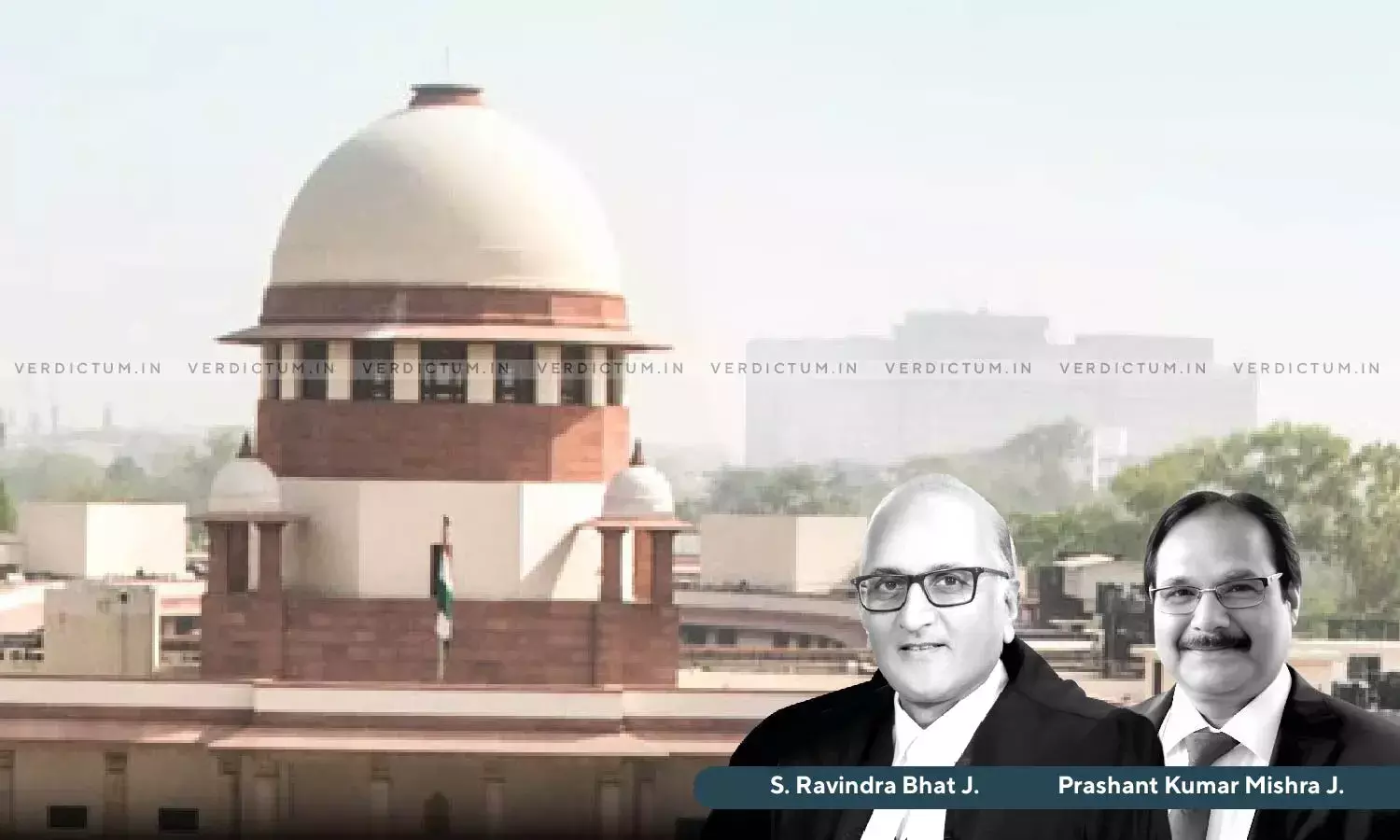Ultimate Goal Of Imprisonment Even In Most Serious Crime Is Reformation: SC Allows Premature Release Of Murder Convict

The Supreme Court allowed the premature release of the murder convict, who was incarcerated for 24 years. The Appellant had applied for premature release twice to the Remission board, but both were rejected. The Probation Officer submitted a favorable report but the Superintendent of Police noted the adverse report submitted by the Presiding Judge.
The Court emphasized that even prisoners convicted of serious crimes can be reformed and reintegrated into society after being imprisoned. The Court asserted that the government should consider various factors when making decisions about early release, such as the prisoner's potential for future crimes, the purpose of continued imprisonment, the prisoner's socioeconomic status, health, family ties, and efforts to reintegrate.
The Bench comprising Justice S. Ravindra Bhat and Justice Prashant Kumar Mishra observed, “In fact, earlier cases of conviction (such as the present one - in 2001), have an even lesser probability of a judicial record which reflects consideration of such multi-dimensional factors at the sentencing stage; the lack of which should not serve as an obstacle to the convict seeking release (after serving almost two decades, or more), erasing the reformative journey they may have undertaken as a result of their long incarceration… It has been repeatedly emphasized that the aim, and ultimate goal of imprisonment, even in the most serious crime, is reformative, after the offender undergoes a sufficiently long spell of punishment through imprisonment”.
Advocate Randhir Kumar Ojha appeared for the Appellant and Advocate Azmat Hayat Amanullah appeared for the Respondents.
Background:
The Appellant, who had been in jail for 24 years without remission or parole, filed a writ petition before the Supreme Court under Article 32 of the Constitution seeking his premature release. He was convicted of murder in 2001 and sentenced to life imprisonment. He had since completed over 24 years of actual imprisonment, including remission. The Appellant's application for premature release was rejected by the Remission Board (Board) in 2021 and again in 2023. The Board noted the adverse reports of the Presiding Judge, the Superintendent of Police, and the convicting Court. The Appellant argued that he has been a model prisoner and has completed over four years and eight months of remission. He contended that he has a family to support and that his continued incarceration is causing them hardship.
The Court placed reliance on the case of State of Haryana v. Jagdish [(2010) 3 SCR 716]. The Court noted that the executive power to suspend or remit sentences must be exercised fairly, reasonably, and not arbitrarily. The Court also held that the opinion of the presiding judge is only one of the factors that the appropriate government should consider when deciding on a remission application. The Court further held that the appropriate government should take a holistic view of all the opinions received, including the judicial view of the presiding judge, keeping in mind the purpose and objective of remission.
“All this is not to say that the presiding judge’s view is only one of the factors that has no real weight; but instead that if the presiding judge’s report is only reflective of the facts and circumstances that led to the conclusion of the convict’s guilt, and is merely a reiteration of those circumstances available to the judge at the time of sentencing (some 14 or more years earlier, as the case may be), then the appropriate government should attach weight to this finding, accordingly. Such a report, cannot be relied on as carrying predominance, if it focusses on the crime, with little or no attention to the criminal. The appropriate government, should take a holistic view of all the opinions received (in terms of the relevant rules), including the judicial view of the presiding judge of the concerned court, keeping in mind the purpose and objective, of remission”, the Bench noted.
Furthermore, the Court observed that the Remission Board had not adequately considered all the relevant factors, including the prisoner's post-conviction conduct, age and health, and the length of his actual incarceration. The Court also found that the presiding judge's opinion was adverse and based on the record of the case, which did not reflect the prisoner's post-conviction progress.
The Court observed, “The record clearly indicates that the reason for rejection of the petitioner’s application, is the adverse report submitted by the presiding judge in the first round, which was perfunctorily relied upon and reiterated in the report submitted by the then presiding judge in the second round as well. Both the reports submitted by the presiding judges (at the relevant time), demonstrate a casual opinion, based solely on the judicial record which presumably consisted of the finding of guilt, by the trial court and High Court. This offers only a dated insight on the petitioner, one that has limited opportunity to consider the progress the convict has made in the course of serving his sentence. Yet, the Remission Board has privileged the presiding judge’s opinion over the other authorities – like the Probation Officer, and Jail authorities, who are in a far better position to comment on his post-conviction reformation – offering a cautionary tale”.
Accordingly, the Court allowed the Writ Petition.
Cause Title: Rajo @ Rajwa @ Rajendra Mandal v. The State of Bihar & Ors. (2023 INSC 771)

